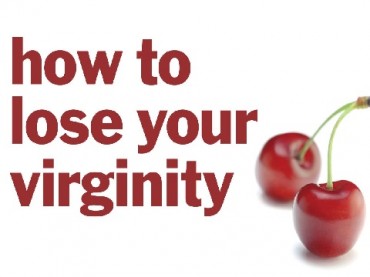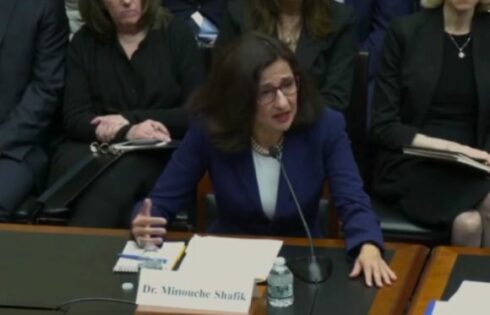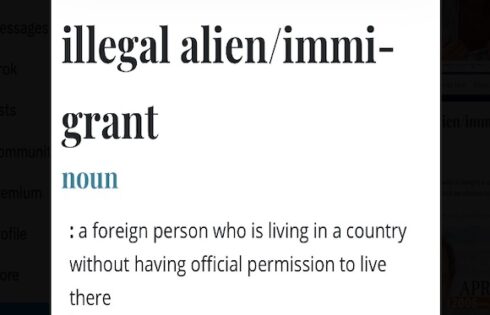
Virginity should be what people want to make of it – not what society, religion, porn or pop culture dictates or shames them into believing – according to a feminist thinker who recently debuted a new documentary on the subject.
“The concept of virginity in some ways gets in the way of making healthy personal decisions about sex, because there is so much mythology and meaning attached to it,” filmmaker Therese Shechter said in an interview with The College Fix about her latest film “How To Lose Your Virginity.”
It debuted in November and is already becoming quite popular among academics who occupy women’s and gender students departments in universities across the nation.
“Why do we give virginity so much value and meaning?” Shechter asks during the trailer for the film. “How do we undo the power of this elusive, mysterious and not always precious gift?”
The film in part takes a critical eye on the Christian dogma of no sex before marriage, abstinence-only education, and purity pledges. Shechter said losing one’s virginity is more of a process than the first time a man inserts his penis into a woman’s vagina.
“I talk about the idea that we have a series of virginity losses of many different kinds,” she said. “I think that the concept of virginity is a big deal to a lot of people, but the issue though is we do a very bad job of talking about sex with young people, and there is still a lot of stigma and shame behind it.”
The 67-minute documentary is scheduled to be viewed tonight by the women’s and gender studies department at the Massachusetts Institute of Technology, and has already been screened at Harvard, Skidmore, UT San Antonio, Eastern Washington University, Brooklyn College, Cal State Los Angeles and the University of Nebraska-Lincoln, among others.
With two ripe, red cherries as its promotional front cover, the film is touted by producers as a practical look into virginity, “which has launched both purity balls and porn franchises, defines a young woman’s morality–but has no medical definition.”
The documentary argues virginity is “fetishized” by the porn industry and manipulated by the wedding industry through the promotion of “virginal-white” dresses. It points out artificial hymens are on sale for $30 on the internet, and highlights a news story in which a 22-year-old women auctioned her virginity to the highest bidder.
It “uncovers the myths and misogyny surrounding a rite of passage that many obsess about but few truly understand” and explores “why our sex-crazed society cherishes this so-called precious gift.”
With that, at one point the film tackles purity pledges to address young girls and women who may want to offer their virginity as a precious gift to their husbands.
“When young women make purity pledges it’s not entirely clear what they are pledging,” Shechter said. “With purity pledges, they reinforce the idea that the men are the keepers of the girls’ sexuality, that their sexuality – whether they are going to put it off or not – is not theirs, it’s their fathers’, and then it’s their husbands’. … I don’t think that is a healthy message that young women are not in control of their own sexual decisions.”
Shechter said she is fine with the decision to save sex for marriage as long as it’s made on “scientifically accurate, non-shaming” information. The film includes women who’ve made that choice and are happy with it.
The notion of abstinence is also tackled in the film.
“Abstinence (only education) does not offer accurate information on sexuality,” she said. “One of the things they have to teach is if you have sex before marriage you will suffer psychological harm. … Telling people they have to wait until they are going to get married or they are going to go crazy or they are going to get an STD or they are morally in trouble … is not enough information and not accurate information.”
“I am a fan of teaching abstinence as part of a comprehensive sex education program.”
Shechter, 52, is no stranger to the feminist documentary genre.
For nearly a decade, her work has tackled the world with a feminist lens through documentaries such as “I was a Teenage Feminist,” and other short ones on sexuality, the rape culture and body image.
“They exist on a thematic continuum that runs through all of my work: The ability of each of us to define who we are and what we need, without judgment or shame,” she states on her website.
And when it comes to virginity, Shechter argues its definition has not necessarily been warped over time, but rather has changed as those in power change it. Shechter said the Sexual Revolution isn’t over.
“The Sexual Revolution maybe started to give women more autonomy over their body and choices, I think that is still happening, I don’t think the revolution is said and done,” she said. “A lot of women are still being judged…. We still have a long way to go.”
The documentary is set to air nationally at 8 p.m. EST Feb. 8 on the Fusion channel.
Like The College Fix on Facebook / Follow us on Twitter




Please join the conversation about our stories on Facebook, Twitter, Instagram, Reddit, MeWe, Rumble, Gab, Minds and Gettr.